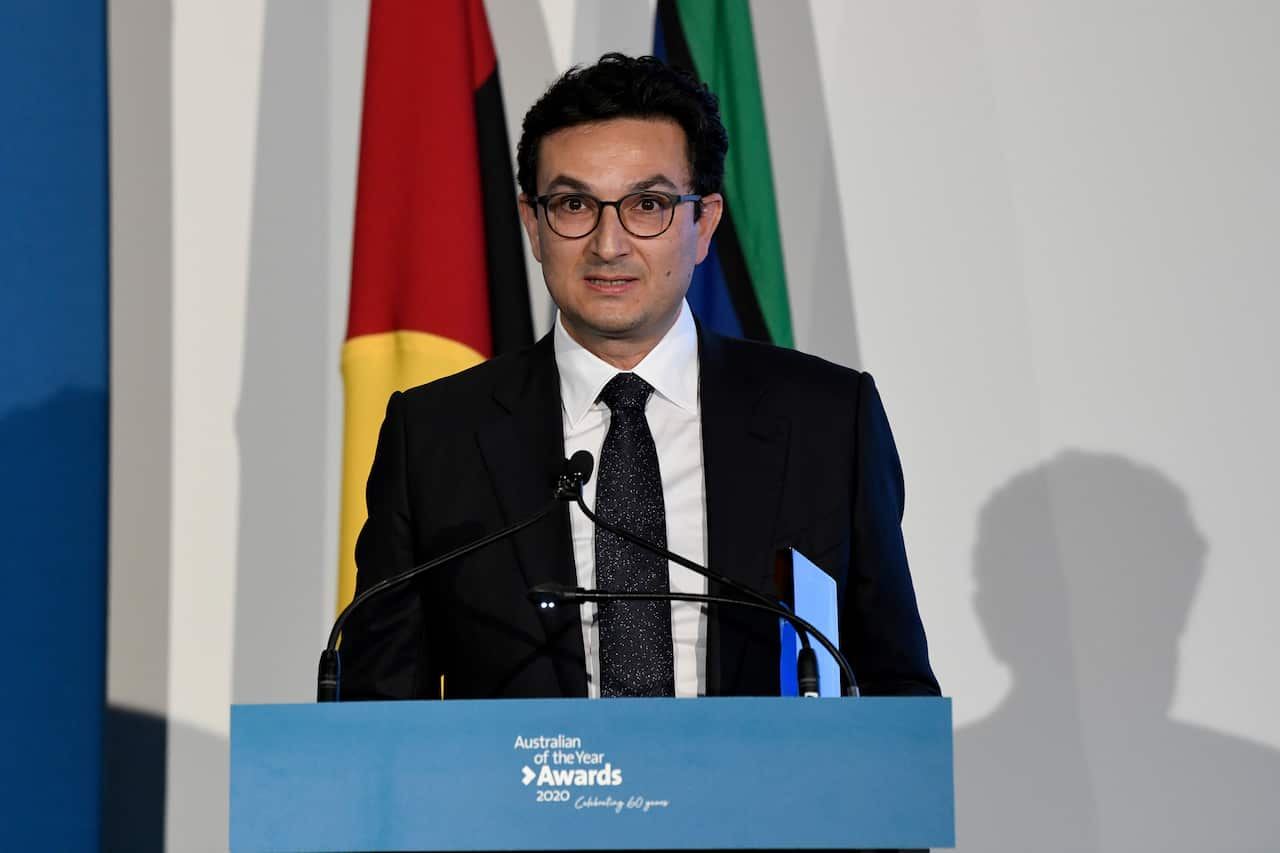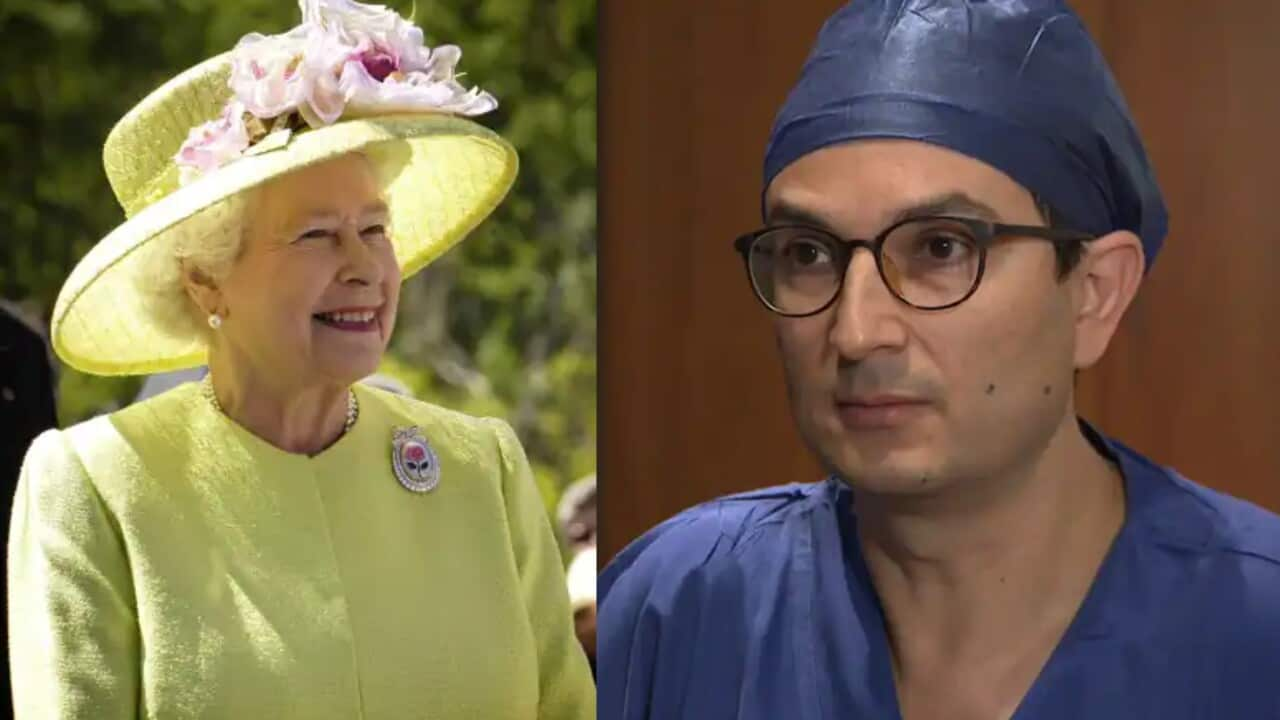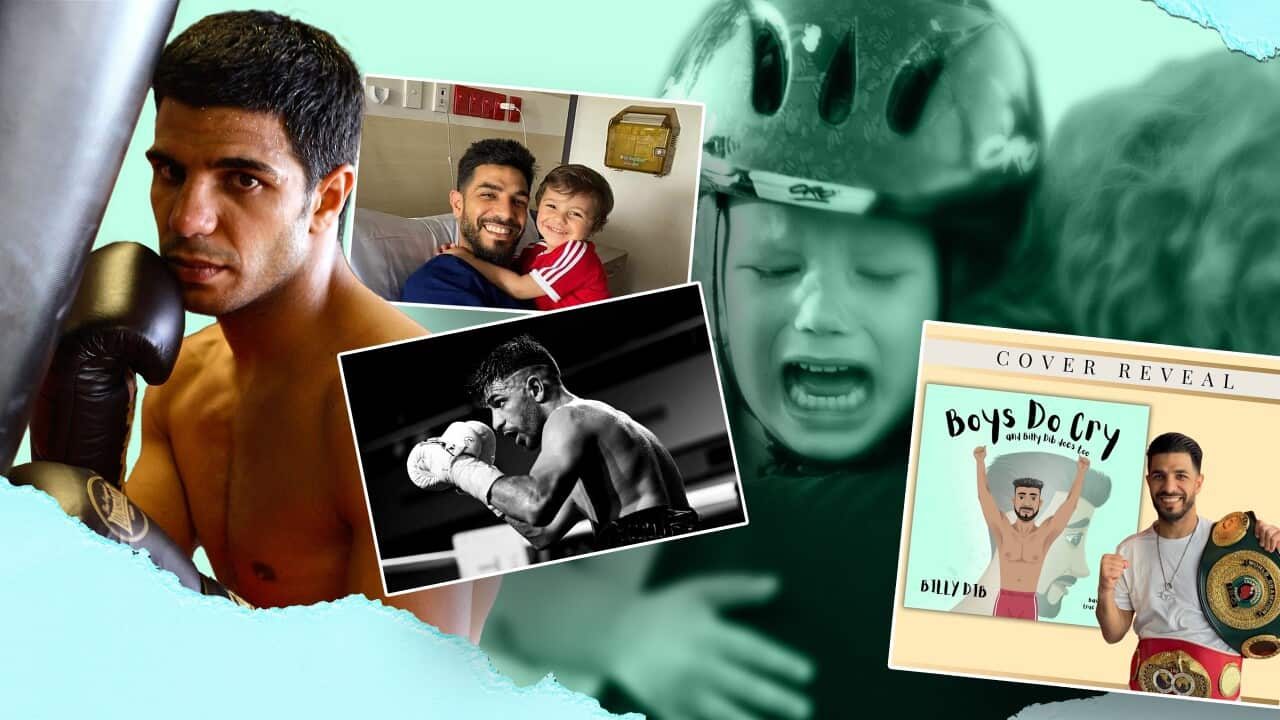Key Points
- Dr Al-Muderis is a world-famous prosthetics' surgeon
- He fondly recalls the late Queen's simple and natural style on meeting her nine years ago
- Dr Al-Muderis has performed thousands of operations mostly on soldiers injured in wars
In the wake of the passing of the longest-serving monarch, Queen Elizabeth II, an Iraqi-Australian surgeon reflects on his meeting with her in 2014.
Dr Munjed Al-Muderis specialises in prostheses for mainly military personnel with his operations changing lives for the better both in Australia and throughout the world.

NSW Australian of the Year Professor Munjed Al-Muderis. Source: AAP
For this important work, he received official thanks from Queen Elizabeth's grandson Prince Harry, who met him several times both in Australia and Britain.

Dr Al-Muderis explains his work to Prince Harry.
He says he had been honoured by the occasion and that he still treasured the “red invitation card embossed with gold” that he had received ahead of the ceremony.
He describes the late Queen Elizabeth II as “very modest and very natural in dealing with people.”
“She had grace and was extremely honest, simple and humble. This indicates her commitment to serving her people. This is a strong proof of the concept of her wise leadership.
“She was a pioneer in her field as the leader of the Commonwealth so people regarded her with respect."

Queen Elizabeth II Source: AAP
She hadn't known that the soldier was walking on two artificial legs, but as a doctor, Dr Al-Muderis says he had been concerned that the man might stumble and fall, which would have caused him great embarrassment in front of everyone.
“I had tears in my eyes and a mixed feeling of fear, dread and pride,” Dr Al-Muderis told SBS Arabic24.
He stressed that as a doctor of Arab origin, he did not differentiate between the injured in terms of their countries of origin.
“I was proud to represent my country and pray. This is proof of the communication of communities," he said.
"It is true that Britain was one of the countries that occupied Iraq, but when it becomes a matter of medicine and treatment, there is no difference."
We are all citizens and human beings, and we must all work to serve humanity.
Listen to the full interview in the podcasts at the top of the page.
Did you like the article? Listen to the “Australia Today” program from Monday to Friday from 3:00pm to 6:00pm Eastern Australian Time via digital radio and the Radio SBS app, which is available free of charge at and




